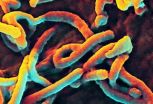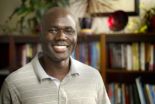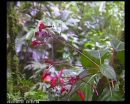(Press-News.org) UCLA biologists have identified a gene that can slow the aging process throughout the entire body when activated remotely in key organ systems.
Working with fruit flies, the life scientists activated a gene called AMPK that is a key energy sensor in cells; it gets activated when cellular energy levels are low.
Increasing the amount of AMPK in fruit flies' intestines increased their lifespans by about 30 percent — to roughly eight weeks from the typical six — and the flies stayed healthier longer as well.
The research, published Sept. 4 in the open-source journal Cell Reports, could have important implications for delaying aging and disease in humans, said David Walker, an associate professor of integrative biology and physiology at UCLA and senior author of the research.
"We have shown that when we activate the gene in the intestine or the nervous system, we see the aging process is slowed beyond the organ system in which the gene is activated," Walker said.
Walker said that the findings are important because extending the healthy life of humans would presumably require protecting many of the body's organ systems from the ravages of aging — but delivering anti-aging treatments to the brain or other key organs could prove technically difficult. The study suggests that activating AMPK in a more accessible organ such as the intestine, for example, could ultimately slow the aging process throughout the entire body, including the brain.
Humans have AMPK, but it is usually not activated at a high level, Walker said.
"Instead of studying the diseases of aging — Parkinson's disease, Alzheimer's disease, cancer, stroke, cardiovascular disease, diabetes — one by one, we believe it may be possible to intervene in the aging process and delay the onset of many of these diseases," said Walker, a member of UCLA's Molecular Biology Institute. "We are not there yet, and it could, of course, take many years, but that is our goal and we think it is realistic.
"The ultimate aim of our research is to promote healthy aging in people."
The fruit fly, Drosophila melanogaster, is a good model for studying aging in humans because scientists have identified all of the fruit fly's genes and know how to switch individual genes on and off. The biologists studied approximately 100,000 of them over the course of the study.
Lead author Matthew Ulgherait, who conducted the research in Walker's laboratory as a doctoral student, focused on a cellular process called autophagy, which enables cells to degrade and discard old, damaged cellular components. By getting rid of that "cellular garbage" before it damages cells, autophagy protects against aging, and AMPK has been shown previously to activate this process.
Ulgherait studied whether activating AMPK in the flies led to autophagy occurring at a greater rate than usual.
"A really interesting finding was when Matt activated AMPK in the nervous system, he saw evidence of increased levels of autophagy in not only the brain, but also in the intestine," said Walker, a faculty member in the UCLA College. "And vice versa: Activating AMPK in the intestine produced increased levels of autophagy in the brain — and perhaps elsewhere, too."
Many neurodegenerative diseases, including both Alzheimer's and Parkinson's, are associated with the accumulation of protein aggregates, a type of cellular garbage, in the brain, Walker noted.
"Matt moved beyond correlation and established causality," he said. "He showed that the activation of autophagy was both necessary to see the anti-aging effects and sufficient; that he could bypass AMPK and directly target autophagy."
Walker said that AMPK is thought to be a key target of metformin, a drug used to treat Type 2 diabetes, and that metformin activates AMPK.
INFORMATION:
The research was funded by the National Institutes of Health's National Institute on Aging (grants R01 AG037514 and R01 AG040288). Ulgherait received funding support from a Ruth L. Kirschstein National Research Service Award (GM07185) and Eureka and Hyde fellowships from the UCLA department of integrative biology and physiology.
Co-authors of the research were Anil Rana, a postdoctoral scholar in Walker's lab; Michael Rera, a former UCLA postdoctoral scholar in Walker's lab; and Jacqueline Graniel, who participated in the research as a UCLA undergraduate.
In research published last year, Walker and his colleagues identified another gene, called parkin, that delayed the onset of aging and extended the healthy life span of fruit flies.
UCLA biologists delay the aging process by 'remote control'
2014-09-08
ELSE PRESS RELEASES FROM THIS DATE:
Rapid and durable protection against ebola virus with new vaccine regimens
2014-09-08
One shot of an experimental vaccine made from two Ebola virus gene segments incorporated into a chimpanzee cold virus vector (called chimp adenovirus type 3 or ChAd3) protected all four macaque monkeys exposed to high levels of Ebola virus 5 weeks after inoculation, report National Institutes of Health (NIH) scientists and their collaborators. The ability of the ChAd3 Ebola virus vaccine to elicit rapid protection in monkeys is notable as the world health community battles an ongoing Ebola virus disease outbreak in West Africa. While the protective effects of the single ...
Teens living with 2 college-educated parents less likely to use alcohol and marijuana
2014-09-08
ARLINGTON, Texas -- A high school senior who lives with two college-educated parents is significantly less likely to drink alcohol or smoke marijuana than a teenager who lives with one parent, a new University of Texas at Arlington study has found.
For example, teens living with their mother only are 54 percent more likely to use alcohol, and 58 percent more likely to smoke if they live only with their father.
Eusebius Small, an assistant professor in the UT Arlington School of Social Work, analyzed data on 14,268 teenagers to determine the impact of family structure ...
Ohio University paleontologists discover new species of titanosaurian dinosaur in Tanzania
2014-09-08
ATHENS, Ohio (Sept. 8, 2014)—Ohio University paleontologists have identified a new species of titanosaurian, a member of the large-bodied sauropods that thrived during the final period of the dinosaur age, in Tanzania. Although many fossils of titanosaurians have been discovered around the globe, especially in South America, few have been recovered from the continent of Africa.
The new species, named Rukwatitan bisepultus, was first spotted by scientists embedded in a cliff wall in the Rukwa Rift Basin of southwestern Tanzania. Using the help of professional excavators ...
In one of nature's innovations, a single cell smashes and rebuilds its own genome
2014-09-08
Life can be so intricate and novel that even a single cell can pack a few surprises, according to a study led by Princeton University researchers.
The pond-dwelling, single-celled organism Oxytricha trifallax has the remarkable ability to break its own DNA into nearly a quarter-million pieces and rapidly reassemble those pieces when it's time to mate, the researchers report in the journal Cell. The organism internally stores its genome as thousands of scrambled, encrypted gene pieces. Upon mating with another of its kind, the organism rummages through these jumbled genes ...
Gobbling up poison: A method for killing colon cancer
2014-09-08
(PHILADELPHIA) – These days, cancer researchers aim to design targeted and specific therapy – those that kill cancer but spare the surrounding tissue. Immunotoxins, which use cancer-targeted antibodies linked to deadly toxins such as ricin, are one such therapy. However, few have succeeded to date in part because cancer cells share many molecules with normal cells, and because it can be challenging to unlock the deadly chemical only after the antibody has homed to the diseased tissue.
Now researchers at Thomas Jefferson University have discovered the unique biological ...
Soft robot squirms over fire, ice, and withstands crushing force
2014-09-08
ITHACA, N.Y. – Engineers have created a shape-changing "soft" robot that can tread over a variety of adverse environmental conditions including snow, puddles of water, flames, and the crushing force of being run over by an automobile.
Videos: https://cornell.box.com/softrobot
The engineers from Cornell and Harvard Universities will detail the robot in an upcoming edition of the journal Soft Robotics. An early online version of the study can be found at: http://online.liebertpub.com/doi/full/10.1089/soro.2014.0008
The pneumatically powered, fully untethered robot was ...
NASA sees large Tropical Storm Fengshen skirting eastern Japan's coastline
2014-09-08
Tropical Storm Fengshen is a large storm and infrared imagery from NASA's Aqua satellite shows that it's about as long as the big island of Japan.
NASA's Aqua satellite passed over Tropical Storm Fengshen on September 7 and the Atmospheric Infrared Sounder instrument known as AIRS gathered temperature data about the storm's cloud tops and surrounding sea surface temperatures. The infrared data showed strong thunderstorms surrounded the center of circulation and also appeared in large bands south and northeast of the storm's center. Another large and fragmented band on ...
Yale study shows how conversion of forests to cropland affected climate
2014-09-08
The conversion of forests into cropland worldwide has triggered an atmospheric change that, while seldom considered in climate models, has had a net cooling effect on global temperatures, according to a new Yale study.
Writing in the journal Nature Climate Change, Professor Nadine Unger of the Yale School of Forestry & Environmental Studies (F&ES) reports that large-scale forest losses during the last 150 years have reduced global emissions of biogenic volatile organic compounds (BVOCs), which control the atmospheric distribution of many short-lived climate pollutants, ...
Brain damage caused by severe sleep apnea is reversible
2014-09-08
DARIEN, IL – A neuroimaging study is the first to show that white matter damage caused by severe obstructive sleep apnea can be reversed by continuous positive airway pressure therapy. The results underscore the importance of the "Stop the Snore" campaign of the National Healthy Sleep Awareness Project, a collaboration between the Centers for Disease Control and Prevention, American Academy of Sleep Medicine, Sleep Research Society and other partners.
Results show that participants with severe, untreated sleep apnea had a significant reduction in white matter fiber integrity ...
A bird-pollinated flower with a rather ingenious twist
2014-09-08
VIDEO:
When a bird forages on nectar, the flower twists as the spur complies with the shape of the
bird's bill. In consequence, pollen is placed in an unusual location on...
Click here for more information.
When researchers studying several bird-pollinated species of Impatiens flowers in the mountains of western Cameroon noticed one with an odd, upwardly curving nectar spur, they couldn't imagine how any sunbird could ever sip from it. After recording visitors to the flower continuously ...





